How to Keep Deer and Other Pests out of Your Garden
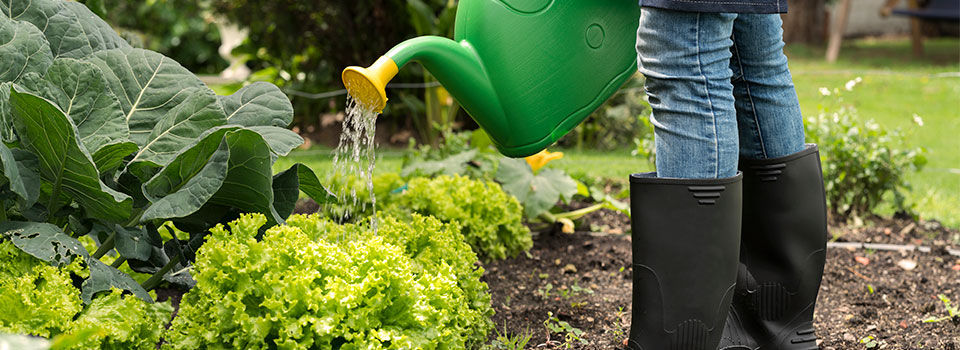
All that hard work has finally paid off. Fruits are on the trees, a cornucopia of veggies are in the garden, and the flower beds are in bloom. These garden bounties are delicious and appealing to you, but unfortunately, they appeal to your furry neighbors, too.
Few gardening travesties are so frustrating as working hard to keep your garden growing beautifully just to come out in the morning and see your azalea bush was eaten overnight. Or, for vegetable gardeners, pulling carrots or digging potatoes in late summer and fall just to discover that someone has munched on them already.
The reality of gardening, especially vegetable and fruit gardening, is that nature has a taste for all those lovely plants. Pests can become such an intolerable nuisance that they end up spending more time in the garden than you do, making a big ole mess as they go along.
Keeping deer and other pests out of the garden is the age-old challenge. Whether it’s voles in the spring, cabbage worms all summer, deer in the fall, or mice in the winter — it seems like there’s always someone trying to come over uninvited for dinner.
While pest problems are not new, there are some newer and more holistic ways to approach pest protection than the chemical route.
Making Your Garden Unacceptable, Unavailable, and Unsurvivable
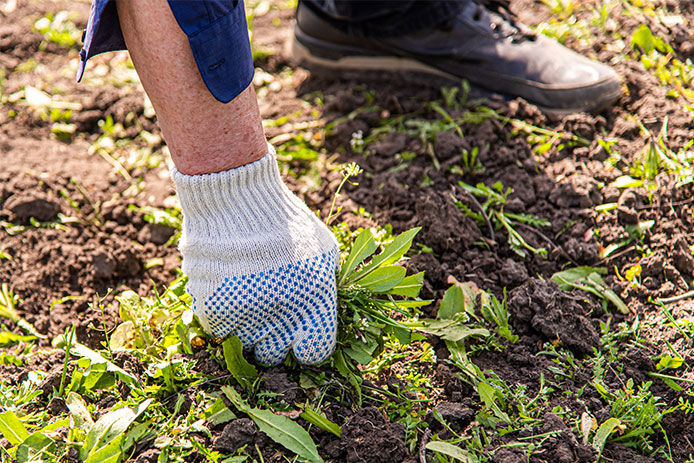
The most important thing to keep in mind when protecting your garden from pests is to make the gardens unacceptable, unavailable, and unsurvivable. Below we’ve listed a few tactics for each and how they work to keep pests away.
Making your garden into an unacceptable habitat for pests is comparable to you not wanting to live in a house that smells funky. But chemical sprays are an overkill when it comes to gardening, as they kill off the good bugs as well as the bad bugs.
Make Your Garden Unacceptable

Companion planting is an excellent way to deter smaller pests, such as bugs and slugs, by planting things in your garden that they don’t like. Many good bugs, such as ladybugs, will feed off pests you don’t want, like aphids.
Companion planting is a safer way to repel the bad guys while keeping the good guys in your gardens. There are many herbs, flowers, and vegetables that will deter nasty critters from your gardens. Some examples are marigolds, nasturtiums, sage, mint, thyme, onions, garlic, and celery.
If you make your garden stinky for these little pests, they won’t even bother to come by in the first place.
Make Your Garden Unavailable
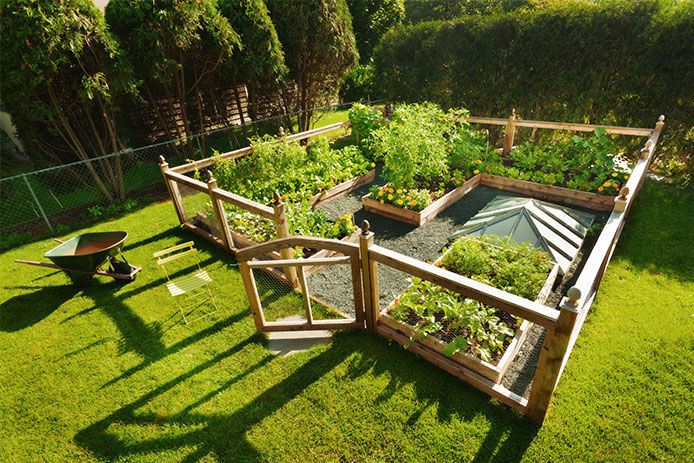
You can make your garden unavailable to pests by ensuring they can’t get to your garden in the first place. This includes rotating crops to confuse pests, erecting walls and fences to keep pests out, keeping garden spaces weeded and free of debris (where pests like to hide), and using intelligent interplanting methods to confuse those who are hunting for a specific plant in the garden. Bugs like to feed on stressed plants, so keeping your plants healthy and happy with steady watering and fertilizing will also deter pests from moving in.
Make Your Garden Unsurvivable
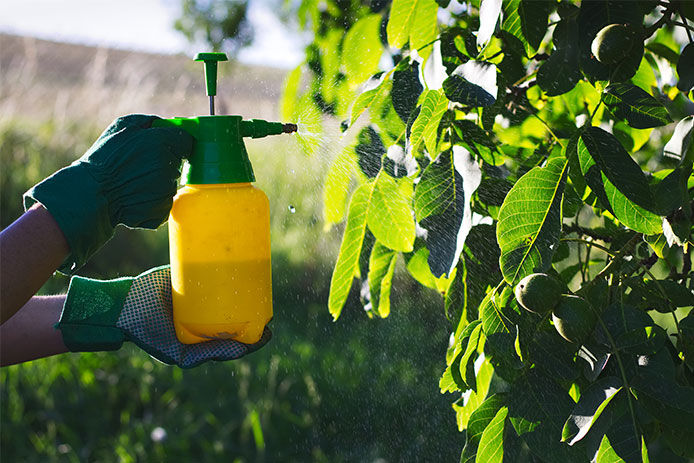
Making your gardens unsurvivable to pests doesn’t mean chemical spraying everything and leaving poisonous pellets everywhere. Some of the natural pesticides and repellents that will have your pests go “yuck!” are soapy water sprays, neem oil spray, and hot pepper products. You might like your meals spicy, but most pests certainly don’t.
The Offenders
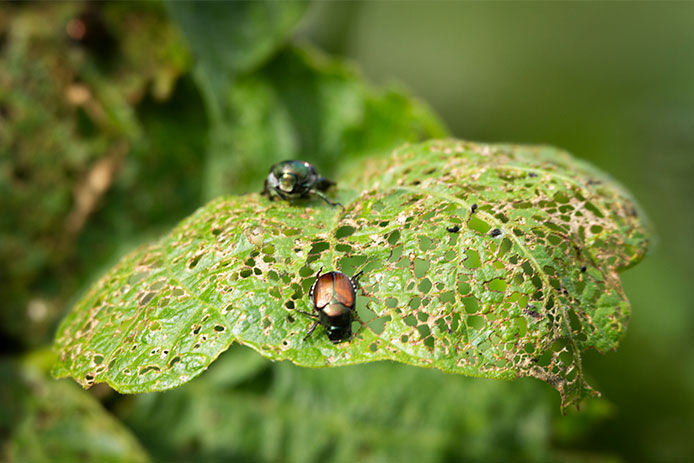
Deer: Deer are often a big garden offender and can do a lot of damage in a short period. They love to munch on flowers, vegetables, and fruit trees, and many are so used to humans that if you shout at them, they probably won’t even look up.
The best offense for deer is a fence. Some deer can easily jump over a 6-foot fence, though. So if deer are a real problem, it is best to invest in an 8-foot fence. Fencing around fruit trees is especially important in winter when deer like to eat tree bark.
Fencing can also be wired with an electric fence to make your garden even more unappealing. If fences are impractical or visually unappealing, purchase predator urine (such as fox or coyote) and spray it around the beds to deter deer and other mammals. You can also use hot pepper, neem, and garlic sprays so deer (and other pests) quickly lose their taste for your plants.
Rodents: Moles, voles, and other rodents will tear through your garden beds. While these persistent pests can be difficult to get rid of, they can be deterred.
One of the best tricks for moles is to use the eco-friendly milky spore, a naturally occurring bacteria, which will get rid of the larvae that moles feed off in the ground. Voles are adamant vegetarians, and since you’re growing plants, you can’t very well get rid of their food source. Voles are sensitive to smells, though, and consistently adding things such as castor oil pellets and peppermint oil mixtures to garden beds will help deter them.
When all else fails, a mesh wire fencing buried 6 inches below ground and a foot above ground will prevent voles, moles, and rabbits from digging their way in. As a last resort, a humane trap will get rid of pesky rodents. Just be sure not to release them too close to home or in your neighbor’s yard.
Bugs: Bugs, slugs, and caterpillars will all make lacework out of your plants. Aside from companion planting, which we mentioned above, spraying plants with homemade soapy mixtures, neem oil dilutions, or hot peppers will drive away most of these pests.
Birds: Scarecrows still work to keep birds from eating away at your garden. An alternative to scarecrows is to tie aluminum plates to your fencing. The flashing light from sun reflection and the banging sounds will scare birds away.
For crops such as blueberries, strawberries, and other fruits, your best bet may be a row covering or netting to really keep the birds away.
Enjoy the Fruits of Your Labor
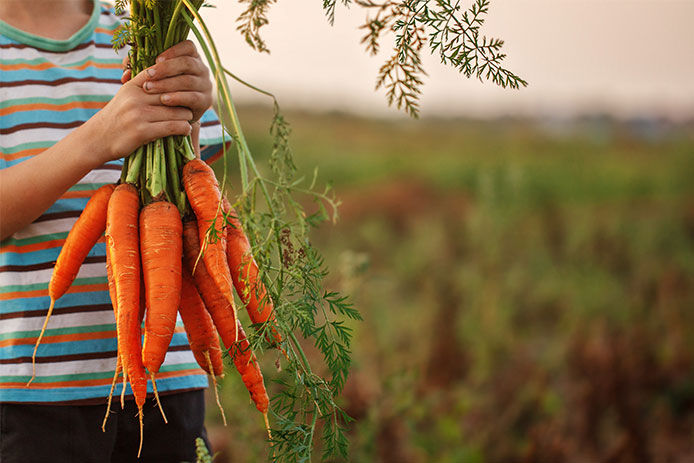
No need to reach for the chemicals just yet. Try these time-tested natural ways to keep deer and pests out of your gardens so you can enjoy your homegrown bounties before they do.